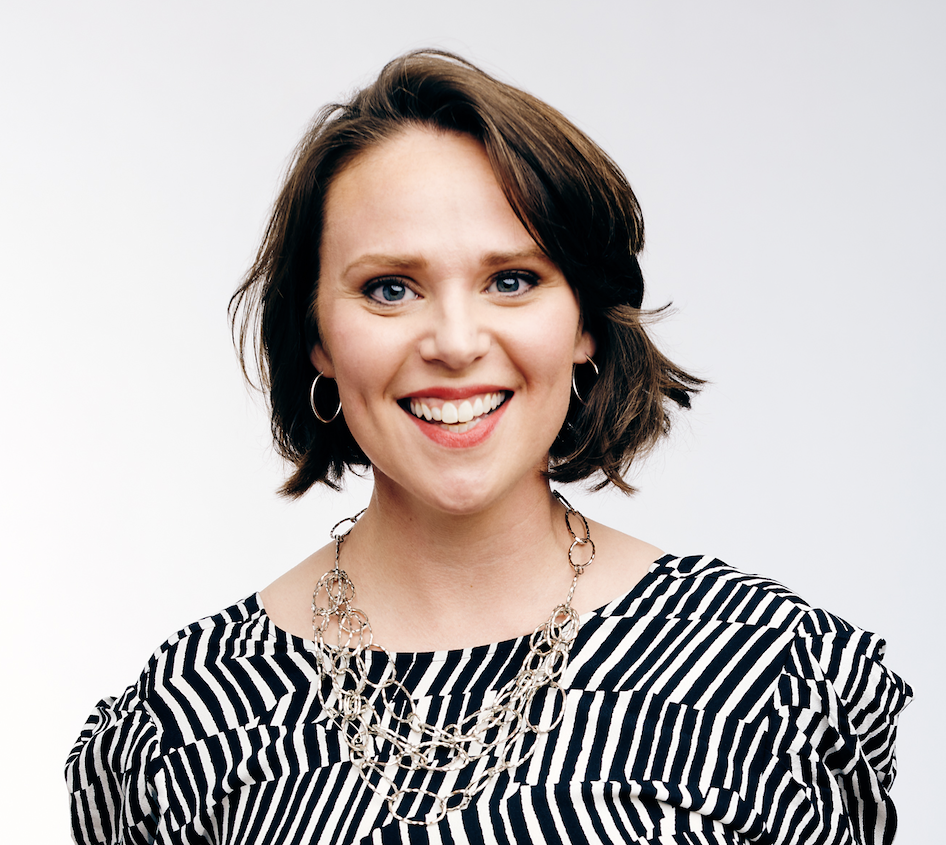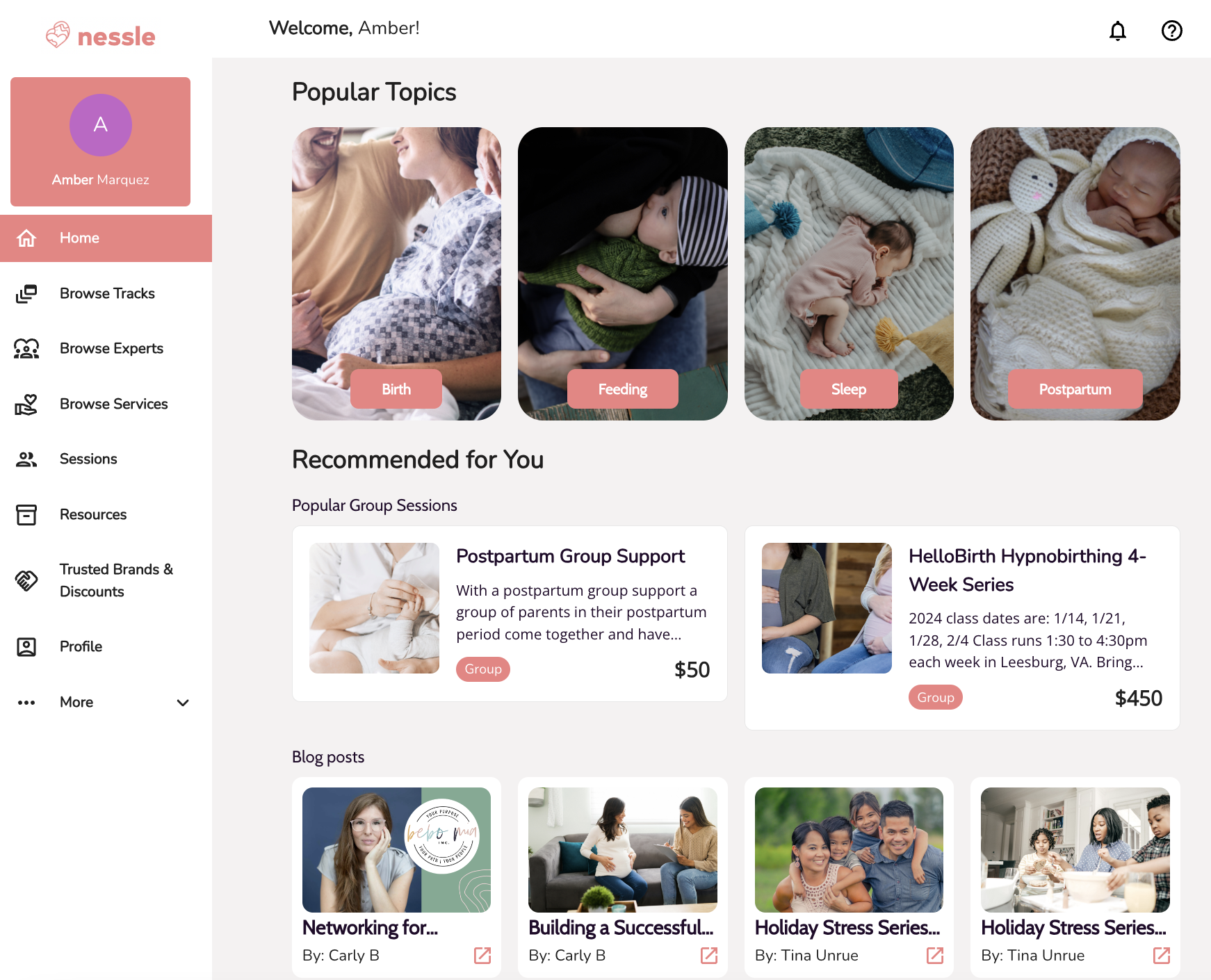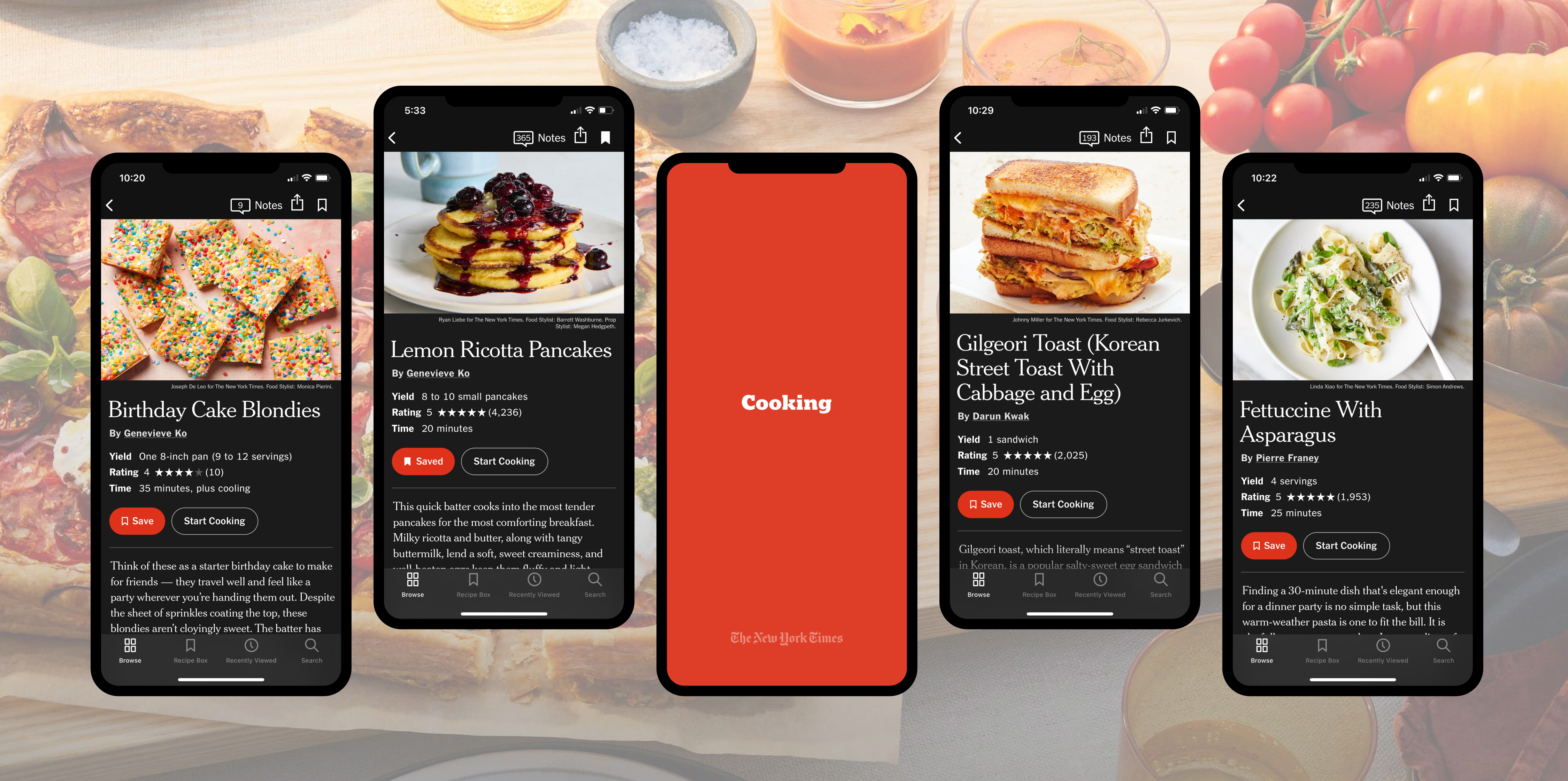Nessle is a parenting co-pilot in your pocket—an open-marketplace platform that makes it easy for parents to get expert, personalized, on-demand support throughout their parenting journey, from fertility through the child’s teenage years. We spoke with founder and CEO Carly Buxton, PhD, about the personal story behind her product and the “absolute rollercoaster” of running a start-up.
Small edits made for clarity.

Upstatement: Tell us about the Nessle user.
Carly Buxton: Nessle connects experts and parents. So it’s a two-sided user base, and we’ve struggled to decide which side of that we should focus on—who should be front and center?
Our parent users are overwhelmed individuals, hardworking and tech-savvy, but just digging through the wilderness of noise about parenting online. Our experts—doulas, sleep coaches, lactation counselors, advisors—want to help people but are struggling to find the right clients, especially outside their zip code.
And how it came to be is very personal to you, from what I’ve heard.
CB: Everybody who gets into this field, it’s because of something personal. We or someone we know had a traumatic experience with birth or parenting, and it’s like, “What is this? What is wrong? Somebody has to do something.” And then we do something.
When I had my daughter in 2017, I wasn’t ready for the experience of welcoming a baby into a household, especially living in a city away from extended family. My way of dealing is to research. So just picture me, newborn screaming on my lap, having a lot of issues, and I’m listening to podcasts, reading a million books, on all these forums, on Facebook and Instagram, trying to figure out how in the world I am going to be myself again or have any semblance of functioning life.

I learned a ton, and as all parents do I emerged from that fog, but it felt like I’d done too much studying to just let it end. I got certified as a postpartum doula and lactation counselor and started supporting individual families. Just as the pandemic started, I decided to focus on it full time. Parents suddenly needed so much help and it had to be done remotely. At first it was me on a Wix site making connections behind the scenes, based on people I knew and thought would match well. Then I got into a couple of start-up support programs and met my co-founder and CTO.
“The idea of users asking an AI robot, ‘Something’s wrong with my baby, what do I do?’ is scary to me.”
Now we have more than 250 experts serving hundreds of families. Our focus right now is on making it really easy for parents to get matched with the right support so they don’t have to dig through tons of information online. We’re building tools that make it easy for a parent to just type a few sentences about what they’re facing, and our algorithm (and ultimately a trained LLM) will set them up with a path forward and an expert match. A few tips, things they could try—plus, here’s a person with a free service who you can talk to today, or a person at a certain price point who’s taking new clients and can offer you this package of X-Y-Z. It’s trying to eliminate the decision fatigue of parenting.
Where does the AI-supported chat experience come into play? Where do you need the professionals to step in as humans?
CB: I was raised by lawyers, and so the idea of users asking a robot, “Something’s wrong with my baby, what do I do?” is scary to me. We’re walking a fine balance by providing encouragement and curation of possible paths forward while not outright saying, “This is what you should do.” Version 1 is an algorithm. Picture a BuzzFeed tool that you would interact with just for kicks to see what Disney princess you are, but instead you find the service available for you—based on your budget, based on where you’re coming from, based on your phase in life, based on your style of parenting. The path forward is always to talk to a human being.
But the more information we get from training a model on research and our own data, the more confident I feel about serving up—still not “should” language, but, “Here’s something you could try today if you haven’t yet.”
Our priorities are lead gen for all of our experts and a path forward for the parents. Our research shows that if you can’t provide a path forward then and there, you’re probably going to lose that client.
There’s nothing quite like the urgency of being a new parent and something happening.
CB: One of my favorite things as a user researcher is to ask brand-new parents to share their Google search history and Amazon purchase history. Their first four weeks of searches and purchases…we want to be a part of that time, to have them asking Nessle questions.
And the time of those Amazon orders…
CB: Right, yeah, 2:21 a.m.!
As we’re talking about both sides of the platform, how do you think about community and the role it plays in the product experience?
CB: It’s been the opposite of straightforward, and I can get in my head about community quite a bit. The initial impetus for Nessle was to cut through noise. A lot of community, as it exists just status quo, is noise, right? It’s not necessarily people supporting one another; it’s people existing in the same space. It’s surface. It becomes real community when people connect with one another for some reason.
We focus on elevating the status quo community to real community. A huge principle of that is content, but not for content’s sake. Content where every single blog post, Instagram post, or podcast that we’ve done actually relates back to a real question we’ve heard or a concern we’ve noticed.
The expert side has been easier. They’re super hungry for community because it doesn’t necessarily exist on the expert side. These birth workers want to talk to each other. It’s a really natural place for us to step in and facilitate those conversations, and host networking events for them online—even send them physical stuff in the mail. That’s been really key for us as a virtual business. I just sent out Nessle headbands, and just having something tactile can be really critical in a virtual community.

It’s harder on the parent side. Parents undoubtedly want community, but our business first grew into existence because there’s a lot of outdated information and negativity in the parenting community space. I researched parents who pose questions in a forum—they project the potential negative responses as they’re typing their question. If they’ve got a question about how to pump on a plane, they’re thinking, “I really hope nobody says, ‘Why are you leaving your baby?’”
Because that dynamic exists, we have been hesitant to do anything that draws parent-to-parent cohorts together. Our mission is for parents to be supported—by experts. There are great companies who do the parent-to-parent community facilitation; those are potential partners for us down the line. It’s important, it’s just not our thing. The community that we want to create for you, as a mom, is you leaning on your doula and that pelvic floor therapist who got you sitting up and not wetting your pants when you sneeze. Those are your people on Nessle.
“A lot of community, as it exists in the status quo, is noise. It’s not necessarily people supporting one another; it’s people who are existing in the same space.”
So a community that’s expert-to-expert and a community that’s parent-to-expert is what we’re trying to build. We think of ourselves as an aggregator. There is no place for a parent to go for resources related to fertility and your teen on social media and your toddler’s behavior. Nessle creates one oasis where it can happen, and makes it easy for a parent or family to have a team of experts who know them supporting them and surrounding them in one spot.
What does your roadmap look like? What are some of the things you’re really excited to bring to Nessle next?
CB: Our biggest excitement right now is our AI. We’re just excited to see parents interact with it. It’s free for them to start experimenting with.
And, coming up, a huge business focus is trusted partnerships. There are so many companies out there working on different corners of parenting being hard. Nessle has a role to play there. So whether it’s building a library of their resources or providing deals to our parent members, my vision is really being a megaphone for experts and brands, and being a synthesizer for parents.
Do you have guiding principles that help you decide who’s allowed on your platform and who’s not?
CB: We do. We have a community pledge that experts agree to when they register for our site. One of our core values is to always keep learning. That’s celebrating the fact that research is always coming out. It’s on the experts to stay on top of the research, to care about some new finding, to make sure that what they’re sharing with their clientele is evidence-based.
Another value is genuine connection through compassion and personalization. Experts sign an agreement that all of the support they offer will be rooted in those values and will be respectful of all families and all of their constellations. As a parenting site, we’re very cognizant that families have all different forms, and we’re there to support them no matter what they look like, how they came together—and we really emphasize, for the experts, that they need to be on that same page.
We don’t have an advertising stream right now, but if we cultivate partnerships in the future—and we have cultivated partnerships with certifying and training organizations—we are very upfront with our standards, our core values, our community pledge. And we’ve just started talking about how there are millions of companies who want to target families, but on Nessle, you have to offer some sort of support to families, not just video streaming or something.
I want to talk a little bit about your parent users. How often are parents using Nessle and what keeps bringing them back?
CB: It varies a ton. On both the expert and parent sides, we certainly have people who register and fall off the face of the earth. We never hear from them again. That’s a huge focus for us right now, to try to figure out what we can get them to do in their first 24 hours that keeps them coming back. One thing that has been successful: if they make a connection, if they have a session or even just a message from an expert, that keeps them coming back.

Our initial flywheel for parent customers, because we have no money for advertising, has been that the experts bring on their own customers. A doula brings somebody on and that person graduates to sleep needs and then to behavior needs or nutrition, and they exist on our platform. Having the expert invite the customer is key to our growth on the parent side, because think of that trust. That’s so-and-so who you trust. You’ve never even heard of the brand Nessle, but you trust Harley, and so you take her sleep courses on our platform. But that can’t last forever. We need to find ways to bring more parents to them by trusting us as a brand. So that has a lot to do with branding, with awareness.
What other ways are you creating that awareness outside of the folks bringing their clients in?
CB: The biggest way has been through online groups. We give the experts a unique URL, like nessle.com/carly, and we encourage them to share that in groups. So if a parent on Richmond Mom Group says, “Hey, we’re switching up to a big-kid bed, but my kid won’t stay in it,” then the sleep coach shares their nessle.com/amanda link, and that lives there forever as new parents keep coming when they search about big-kid beds or whatever.
That’s such an interesting lens, too, on the community that we were talking about before. It sounds like there’s so much importance in referrals and recommendations to start off that trust.
CB: It’s probably 95 percent of how people get business in the birth worker or parenting professional sphere. I think everybody I turned to was a recommendation of somebody I knew. That’s just how this world works, and so we have to find ways to be that referral.
We’d love to hear more about things that inspired you in the early days of your product—and what’s inspiring you now.
CB: If I am honest, we are at a tough spot as a business, and I think it’s important for us to be upfront about it. I listen to a lot of founders on podcasts, and I read a lot, and you don’t necessarily get the hard stuff. I was wondering, How am I going to get the energy to talk [to Upstatement] about Nessle when we need to grow and aren’t growing fast enough? But then I start talking to you and the subject matter itself is so energizing to me. It all goes back to the problem that we’re solving, which is the overwhelmed parent having a way forward.
I think that’s the same thing for a lot of companies. When you hear about an individual person’s experience with what you’ve built, it’s just gold. That’s what we’re working for every day, but it can be hard. It can be really hard to motivate yourself to sell. I’m not a natural salesperson. Members of our team are wearing different hats, some of which don’t fit right, but we’re a small and scrappy team and you just have to keep telling yourself why you’re doing this in the first place. So that’s what we’re driven by.
In Launch Lessons we talk to founders, product managers, and creators about work that builds communities and pushes brands forward.


